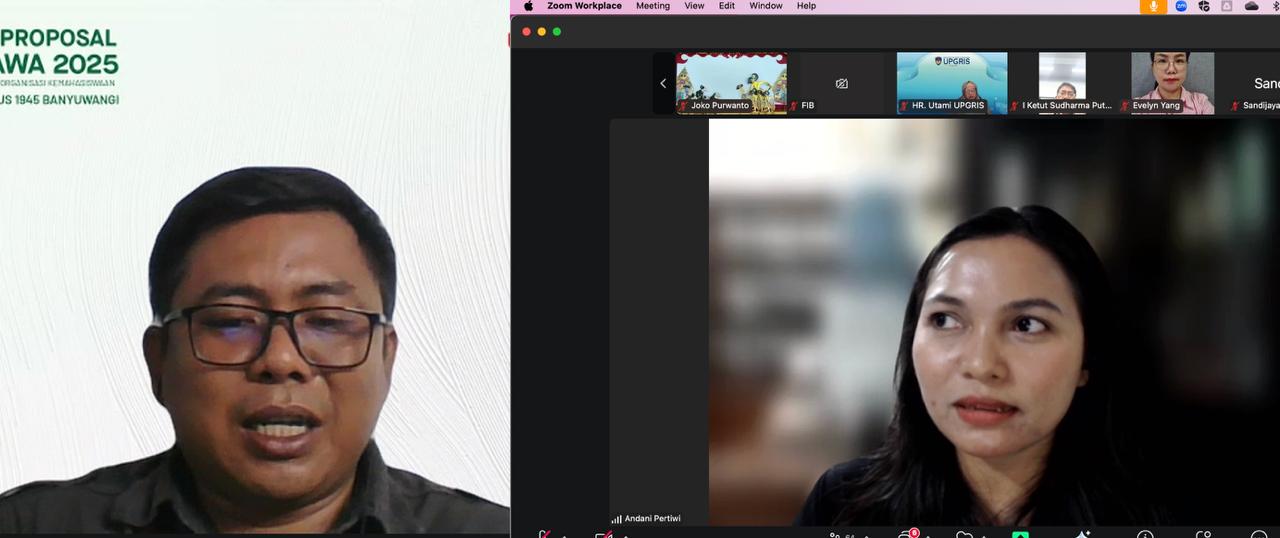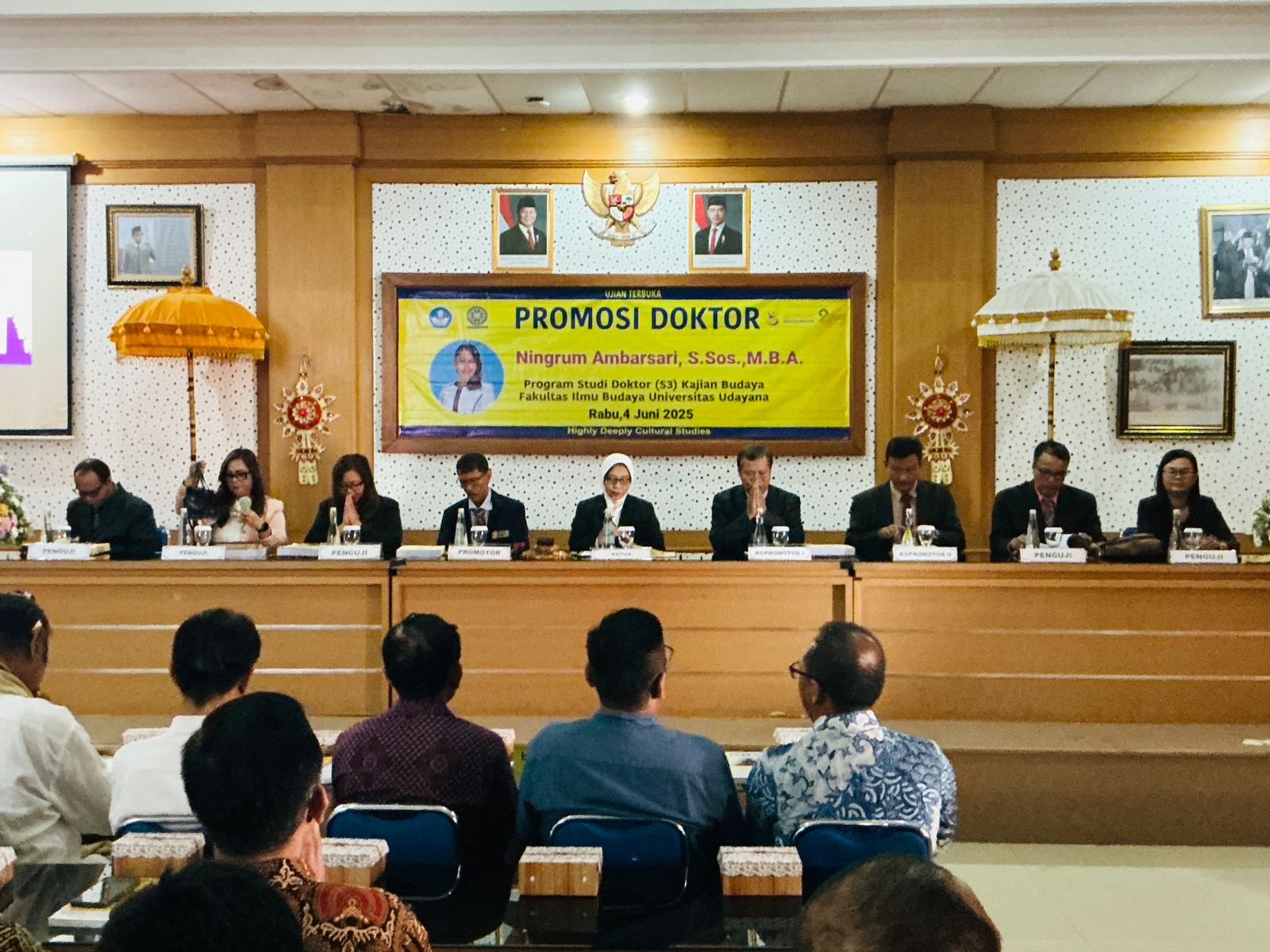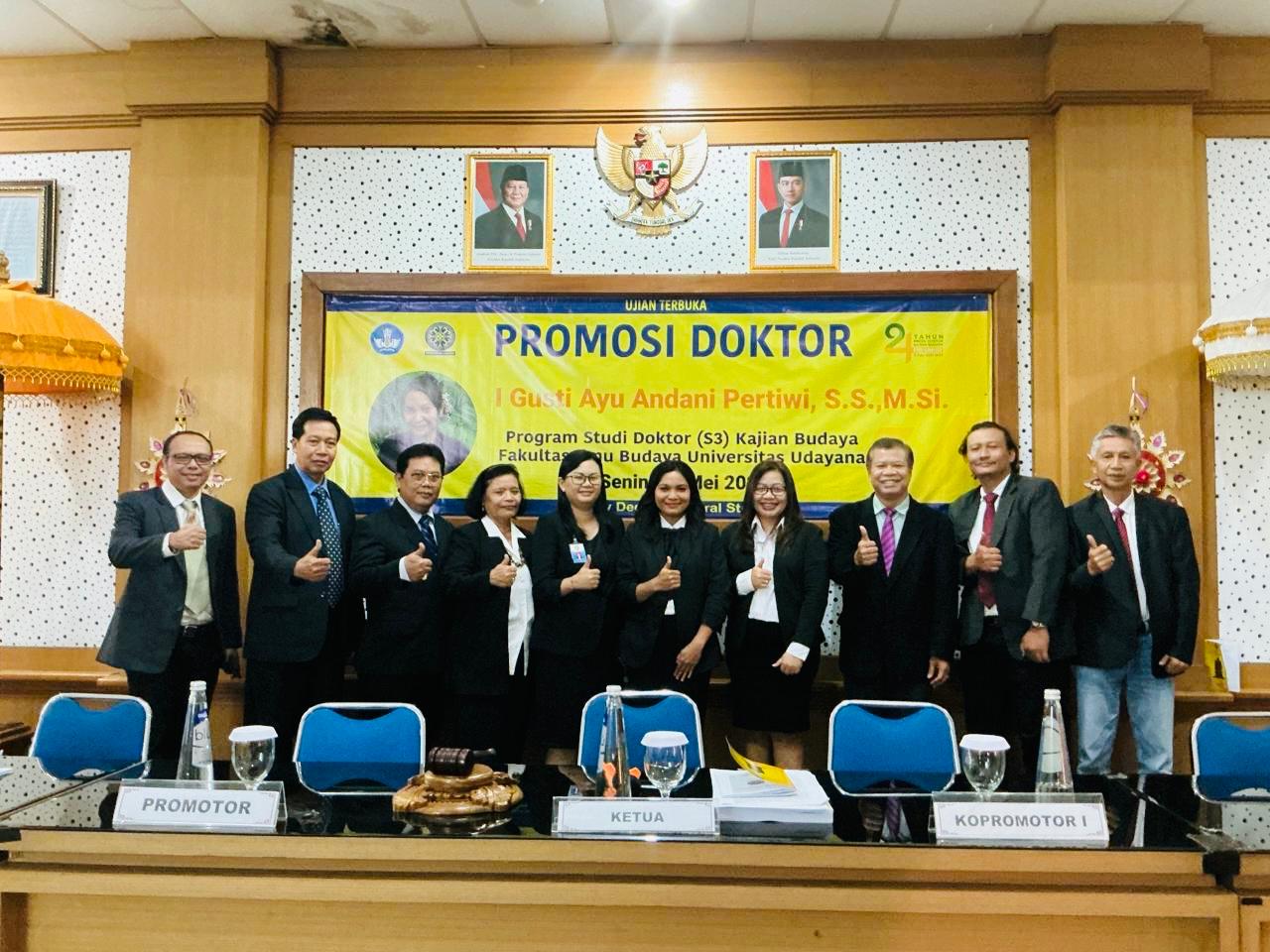Gandrung and Women’s Resistance in Japanese and Balinese Novels Discussed in the 7th National Seminar on Cultural Studies
Denpasar, May 23, 2025 — The 7th Series of the National Seminar on Cultural Studies, organized by the Doctoral Program in Cultural Studies at Udayana University in collaboration with Universitas Sebelas Maret (UNS) Surakarta, was successfully held online on Friday, May 23, 2025.
The event carried the overarching theme of “Cultural Narratives”, featuring two main topics: “Women’s Resistance to Patriarchal Ideology in Japanese and Balinese Literary Texts” and “Gandrung Banyuwangi as a Medium of Political Communication.”
The seminar, which started at 2:00 PM Bali time (WITA), was officially opened by Dr. S.K. Habsari, M.Hum., Ph.D., Coordinator of the Doctoral Program in Cultural Studies at UNS. In her opening remarks, she emphasized the significance of cultural studies in providing new interpretative spaces to analyze power relations within society.
Presentations by the Speakers
The first speaker, I Gusti Ayu Andani Pertiwi, presented a comparative analysis of Japanese and Balinese literary works in responding to patriarchal domination. She highlighted that women’s resistance is not always explicit but often takes place in symbolic and subtle ways.
“Resistance by women in Balinese literary texts often appears in the form of meaningful silence. They don’t scream, but resist through life choices that deviate from customary norms,” said Andani.
The second session was delivered by Mahfud, a Ph.D. candidate in Cultural Studies at UNS, who shared findings from his research on the use of Gandrung Banyuwangi performances in political campaigns. Based on case studies involving both local and national politicians, he explained that Gandrung is not merely entertainment, but a powerful tool of political communication.
“The Gandrung dance creates emotional closeness between politicians and the public. Political messages are conveyed through movement, color, and cultural symbols deeply embedded in the collective memory of Banyuwangi society,” Mahfud stated.
The two-hour seminar was attended by approximately 75 participants, consisting of students, lecturers, and cultural enthusiasts from various regions across Java and Bali, as well as one participant from South Korea.
The discussion was dynamic, with many critical questions from participants being thoughtfully addressed by both speakers. Key issues explored included women’s roles within traditional systems, the symbolic meaning of Gandrung, and the strategic use of arts in political campaigns.
The event was moderated by Putu Titah Kawitri Resen and officially closed by Prof. I Nyoman Darma Putra, Ph.D., Coordinator of the Doctoral Program in Cultural Studies at Udayana University. In his closing remarks, he praised the presentations by the speakers.
“The materials presented were highly valuable and enlightening—not only on Japanese and Balinese novels and the development of Gandrung in Banyuwangi, but also as examples of how Cultural Studies is not merely focused on aesthetics, but more on politics and ideology,” said Prof. Darma.
The high level of participation in this Narasi seminar demonstrates its value for both lecturers and students, especially those interested in the field of Cultural Studies. (*)



FACULTY OF HUMANITIES UDAYANA UNIVERSITY